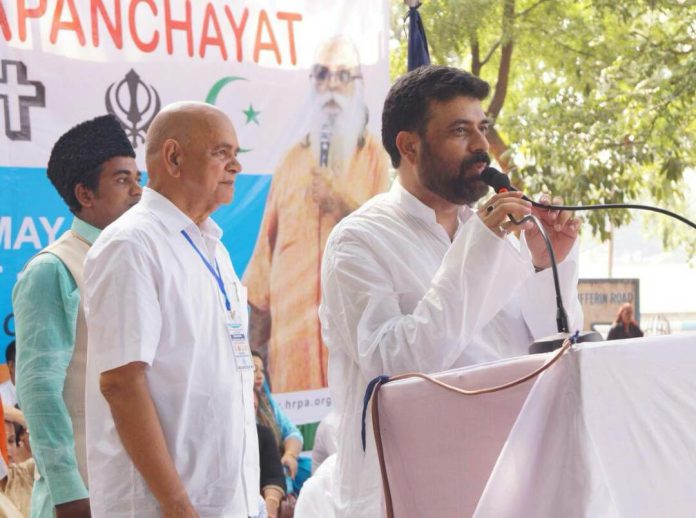Synopsis:Human Rights in India remain under threat, says Shamim Ahmed. He urges judicial oversight of commissions, compulsory constitutional education, and citizens’ awareness to protect rights and dignity.
By Qalam Times News Network
New Delhi | August 22, 2025
Human rights, with deep sorrow and regret, were the central theme of Mr. Shamim Ahmed’s conversation with Qalam Times on the current situation in India. Drawing on his 30–31 years of experience, he expressed serious concerns and reminded us:
“Every violation of human rights is a wound to humanity itself.”
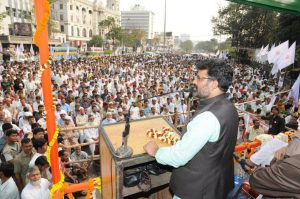
Seventy-nine years have passed since India gained independence. During this time, the nation has progressed in technology, infrastructure, defense, space, and education. Yet, when we look closely, we see that large sections of society still remain deprived of basic facilities such as health care, speedy justice, and quality education. This exposes the harsh truth that human rights remain far from secure, and raises a difficult but necessary question: Who is responsible for this gap between promise and reality?
1. The Role of Commissions and the Government
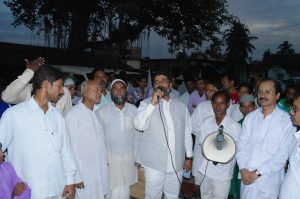
After independence, many commissions were created—Planning Commissions, Human Rights Commissions, Minority Commissions, and others. In theory, their role was to protect the rights of the people and ensure inclusive development. In practice, however, most of these bodies have remained ineffective.
Too often, commissions are influenced by politics. When they are directly appointed by governments, they end up defending those in power instead of defending the common people. As a result, citizens often find themselves helpless. Even today, if someone’s human rights are violated, they usually do not know where to go for justice.
2. Who Actually Protects Human Rights?
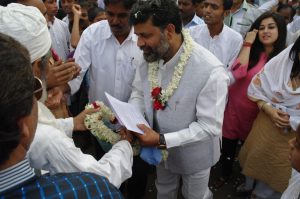
The real protectors of human rights in India are not these commissions, but rather the countless social workers, activists, and ordinary citizens who fight for justice every day. From local courts to police stations, from villages to cities, thousands of such people put their own safety at risk to defend the poor and marginalized. Yet their contributions are rarely recognized, and there are hardly any protective laws for them.
3. The Need for Judicial Oversight
If India truly wants to strengthen human rights, commissions cannot remain under government control. They should be monitored by the High Courts and the Supreme Court. The judiciary is independent and less likely to be influenced by political pressure. If human rights commissions were accountable to the courts rather than the government, citizens would have greater trust in them, and their work would be more effective.
4. The Central Role of the Constitution (Samvidhan)
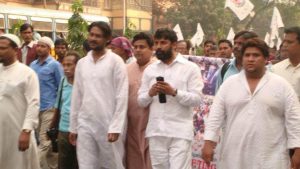
The most powerful document India possesses is its Constitution. It gives every Indian the right to equality, dignity, and freedom. Yet, the sad reality is that most Indians do not know what the Constitution actually says.
- The Constitution should be made a compulsory subject in schools and colleges.
- Every family should keep a copy of the Constitution at home, just as they keep religious texts.
- Children should not only read it but also discuss it, at least one paragraph every week, so that they grow up knowing both their rights and responsibilities.
If young people are educated about the Constitution, they will question injustice, resist corruption, and demand accountability. This, in turn, will create a stronger, more democratic India.
5. Why the Government Hesitates
There is a fear among those in power: the day ordinary citizens and students fully understand the Constitution, they will start questioning authority. Many governments do not want this, which is why constitutional education is not given the importance it deserves. But knowledge cannot be suppressed forever. In the digital age, with social media and online resources, people can easily access information. Still, there is no substitute for having the Constitution in every home, physically present, as a symbol of dignity and empowerment.
6. The Way Forward
India’s progress cannot be measured only by skyscrapers, highways, or satellites. True progress will be when every citizen, rich or poor, urban or rural, feels protected, respected, and empowered.
- Strengthen human rights commissions by placing them under judicial oversight.
- Make constitutional education compulsory at every level of schooling.
- Encourage every family to keep and study the Constitution.
- Recognize and support the work of grassroots activists and social workers who risk their lives for justice.
India’s freedom will be complete not only when we celebrate our Independence Day, but when every citizen enjoys the rights guaranteed in the Constitution. A nation becomes truly powerful when its people are aware of their rights, fulfill their duties, and hold those in power accountable.
The Constitution is not just a legal book; it is the soul of our democracy. If we learn it, live it, and teach it to our children, then India will not only be free in name, but free in spirit.
Janab Shamim Ahmed concluded his talk with a heartfelt appeal to all Indians to keep a copy of the Constitution of India and read a few lines from it every day, just as they read their holy books, in order to safeguard their rights.

